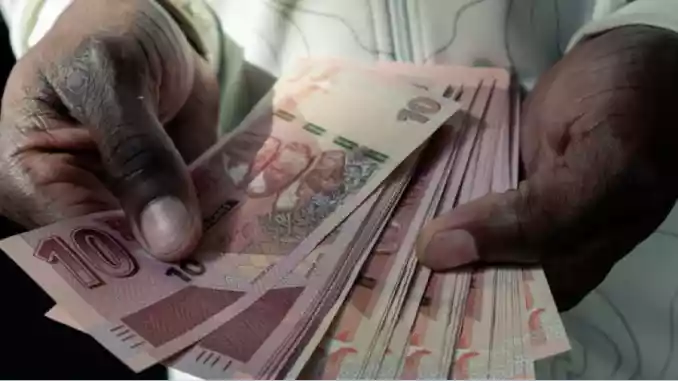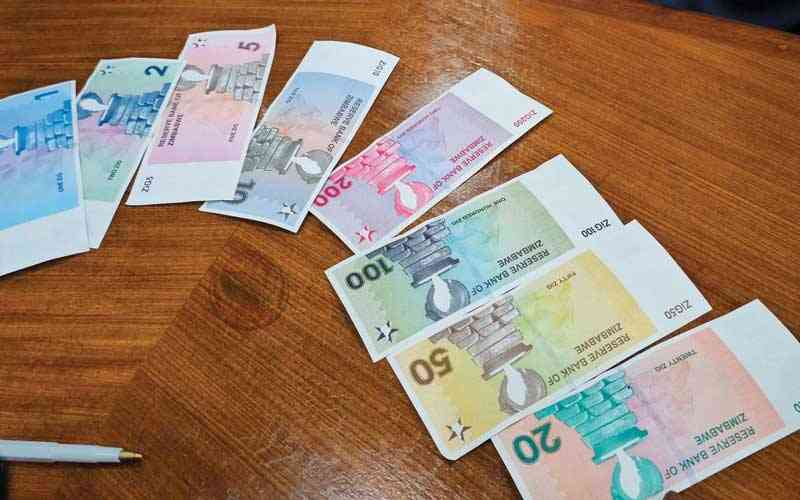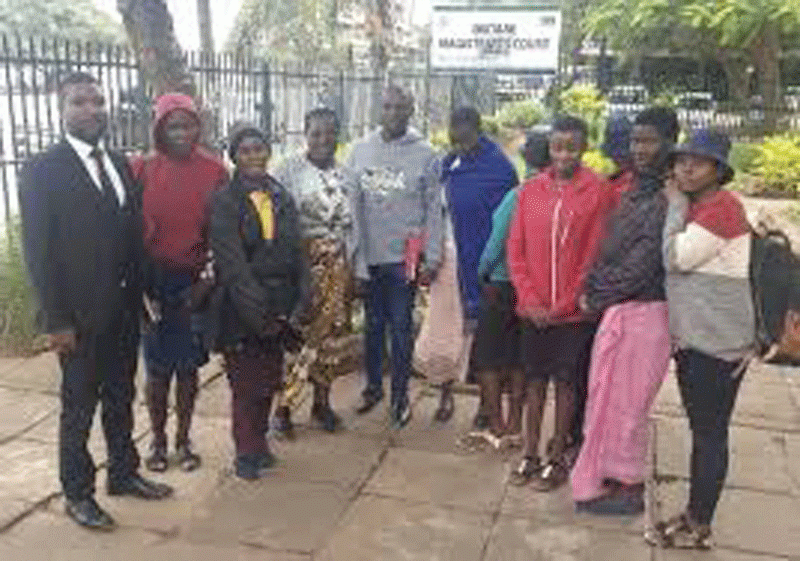
Any informed observer of our economy must be astonished at the things that go on here.
Many of which bear no relation to the situation on the ground or even rational thinking.
This past week has been no exception.
In all I think we have had 10 versions of a domestic currency since Independence.
Now we have the “ZIG”. This takes the cake and is by far the most ridiculous step taken so far in our convoluted path back to sanity.
When I started work in 1957, just 17 years old and working as a farm assistant on a Ranch before going to Gwebi College to do a diploma in agriculture, my meagre salary was worth roughly two pounds to a British pound sterling.
I was able to live, date the odd girl and buy a small sports car.
Today at cattle sales in the south east of the country they still call out the prices at auctions in “Mpondo”.
- Drama around Ndebele king making a mockery of the throne
- Feature: The inevitable return of the greenback
- Umkhathi Theatre Works on King Lobengula’s play
- Econet introduces ‘Smart US Dollar bundles’
Keep Reading
Then at independence in 1980, I participated in the hand over from the Rhodesian government to the newly elected government of Robert Gabriel Mugabe.
The local dollar was still 2 to 1, but against the US dollar at the time.
For 23 turbulent years the local currency had been stable, was the only local means of exchange and was convertible into foreign currencies at a rate displayed in my local bank.
At that time, I did not appreciate the value of this aspect of life lived in the 'rebel regime'.
It had survived the break up of the Federation, 15 years of mandatory UN enforced sanctions, a British blockade of Beira Port and 16 years of civil war.
Quite an achievement.
A fine economist was appointed as our first Finance minister in 1980 and for a while stability prevailed.
The economy grew steadily but expenditure exceeded revenue consistently for the next 17 years, funded by loans and then printed money.
The result, in 1997 the currency collapsed and our dollar slumped to 12 to 1.
Over the next 11 years, our Reserve Bank of Zimbabwe printed money recklessly to prevent a total collapse of the economy and in a final act of desperation, a printed note for $10 000 000 000 000.00 came out and was declared valueless by the market.
The local dollar collapsed and died; it was December 2008.
On February 17, 2009, the then Finance minister, formally declared the event and announced that we could use any one of six international and regional currencies for transactions - the US dollar, UK pound, rand, pula, yen and yuan.
In two months, the rand and the US dollar fought for supremacy but in six months the US dollar was king. It has remained so since then.
During the GNU from 2009 to 2013, in four short years, our economy recovered with state revenues increasing from US$280 million in 2008 to US$4,3 billion in 2013.
Inflation vanished and there was ample US dollar currency for market transactions.
How that was achieved is still a mystery. How we filled our market shelves in 2009 also remains a mystery.
The budget was based famously on “we eat what we kill”, a cash budget.
Then in 2014 the old regime took charge and the madness resumed.
The fiscal deficit spun out of control, the Reserve Bank began printing money again and by 2017 we had $23 billion US dollars in our bank accounts.
Only the stuff was not US dollars - it was an electronically manufactured substitute without any backing.
It was air. We were a country flying across regional history in a hot air balloon, with limited stocks of gas to keep us afloat.
In November 2017, we woke up to see General S B Moyo on national television saying that Mugabe was stepping down and a regime change was under way 'assisted' by the army.
That Friday I sat in Parliament and watched as his resignation was read out to his formally ardent faithful followers.
After 37 years the Mugabe era came to an end.
The next eight months did not bring much change — we were still in transition but after the election in 2018, the new government got down to putting their house in order.
As in 1980, the president brought in an economist from the Diaspora and gave him a clear mandate, 'Get us back on track economically.'
Not easily done; we had a 40% fiscal deficit, 97% of all revenue went to the civil service and there was that hot air balloon that threatened to crash at any time.
In the first two and a half years, the new government brought the economy under control — budget discipline was re-established, salaries brought down to 35% of revenue and the new minister announced that what we had in our bank accounts was “RTGS dollars” and bore no relation to US dollars.
He carefully separated the former from the latter and floated the exchange rate.
The hot air balloon came down slowly at first and then in a rush, but landed without actually killing anyone.
On the ground we found that about a 12% of the real dollars was left in our accounts — 88% shrinkage.
Then we introduced the auction as a substitute for a real market for hard currency and after a slow start we stabilised the exchange rate and were meeting demand.
The reintroduction of our own currency — the RTGS dollar was successful and brought about a rapid recovery of our productive sector — industry and agriculture.
We were at long last creating jobs and the economy began to grow rapidly.
Exports also began to grow and we found ourselves with an increasing surplus of hard currency — reflected by savings of about US$100 million a month.
However, all was not well. Elements of the old economy and administration did not like the idea of a free economy with open competition.
The Reserve Bank retained some elements of the role it played as almost a shadow government under Mugabe and resumed printing money to pay for what they were doing.
The IMF was watching from the sidelines and repeatedly stated that we need alignment between the Reserve Bank and the Treasury and that money supply had to be curtailed.
They were ignored.
The result, our new local currency is again floundering.
It has lost most of its value and the paper notes printed in the early days are just scrap paper.
Instead of the new currency taking over on the street, we have again dollarised.
I would suspect that 85% of all transactions on the street are now in US dollars and over 80% of bank balances are also in US dollars.
Our local industries are no longer competitive and the formal sector is shrinking and with it, our ability to tax our economy to meet needs.
Instead of adopting a conventional and standard basis on which our hard currency earning should be traded, we have manipulated the auction, which is now part of the problem, virtually destroyed our own currency, increased imports and smuggling and are allowing all sorts of financial shenanigans to operate freely (like money laundering).
Now we have introduced gold coins and worst of all, the new gold-backed ZIG token. All counterproductive and simply making things worse.
What is the solution?
Our main problem is confidence in our authorities and our own currency.
We have got to get back to a mono currency economy which uses our own currency.
All foreign exchange coming into the country must be sold on arrival on a bank managed market which produces an exchange rate every hour of the day.
Our Reserve Bank should be buying surplus currency off the market to keep the rate down and holding these balances as national reserves.
Anyone needing foreign exchange for any purpose should be able to buy it from their banks.
That is how the rest of the world does it without exception. Exchange control should be scrapped, it has no role to play.
If we did that this would be a different country in 24 hours, just as it was in February 2009.
*This first appeared on https://www.eddiecross.africanherd.com/










